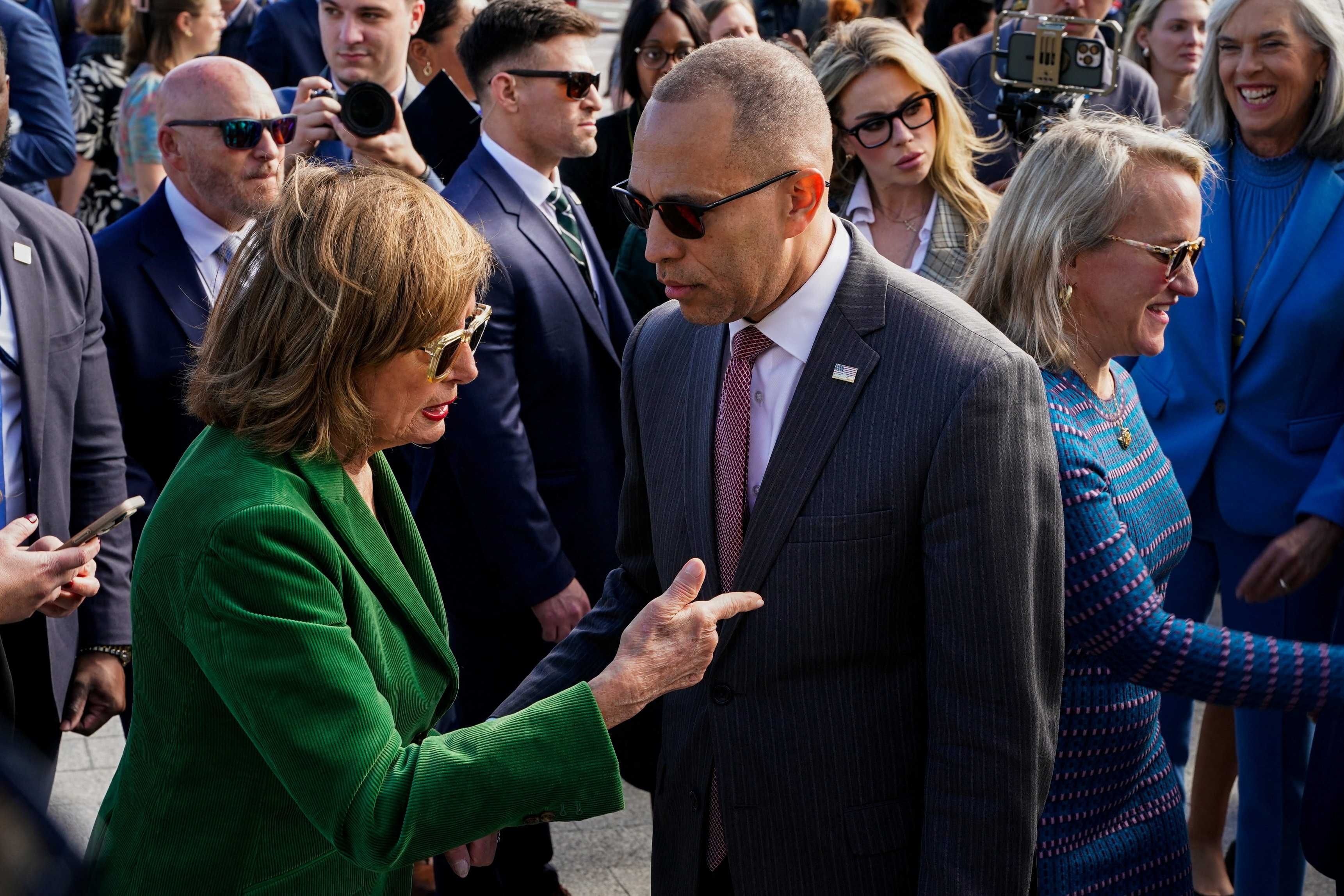The replacement for Nancy Pelosi's congressional seat could be decided by one major issue.
Pelosi confirmed she would not seek re-election to Congress, instead opting to retire at the end of her term in 2027. Experts believe "it's a battle" between possible replacements who may have to weigh in on tech regulation for a shot at the seat. Pelosi has represented California's 11th congressional district since 1987, and tech leaders are expecting something "new and exciting" from whoever replaces the veteran Democrat.
Speaking to NOTUS, Tech Oversight Project executive director Sacha Haworth said "tech regulation" must be a focus of the next California congressional election. Haworth said, "Any opening in Congress is an opportunity for new and exciting things, including tech regulation, especially when it comes from Northern California.
"When you put this in context of like, of the generational change, or the new class of politicians who are looking into running for office, who are running for office, who are perhaps in office right now, is when you’re seeing leaders starting to speak up against the abuses of big tech."
Other tech experts believe the district could be dominated by technological innovations as the seat is "in big tech's back yard." J.B. Branch, a tech accountability advocate for Public Citizen, shared how Pelosi had played a "fine balancing act" when it came to tech.
Branch said, "She played, I would say, a fine balancing act between keeping her members happy with regulation, like calls for regulation, while also keeping her constituents happy by basically trying to pursue as light a touch of regulation as possible.
"The problem with that specific district is that it’s a district in big tech’s back yard. The former speaker laid out a kind of a playbook that might be able to be pursued by the next elected official of that area. Being more moderate in the tech regulatory space, but then being as progressive as they can be in other areas."
Senior policy adviser at the California Initiative for Technology and Democracy David Evan Harris echoed these thoughts, suggesting those in the tech industry were broadly "progressive" and wanted to work with the government when it came to the future of tech regulation.
Harris said, "The thing that maybe is hard to see for people in Washington, D.C., is the extreme disconnect that has emerged over the past year between people who work in the tech industry and tech CEOs. Most of the people who work in the tech industry are very politically progressive and most have political views about regulation of the tech industry that are broadly supportive."
